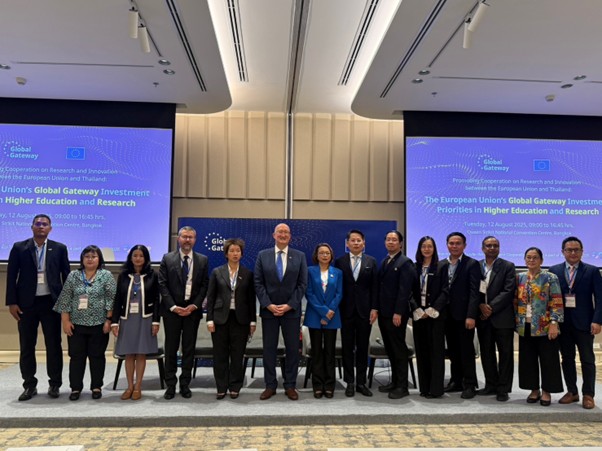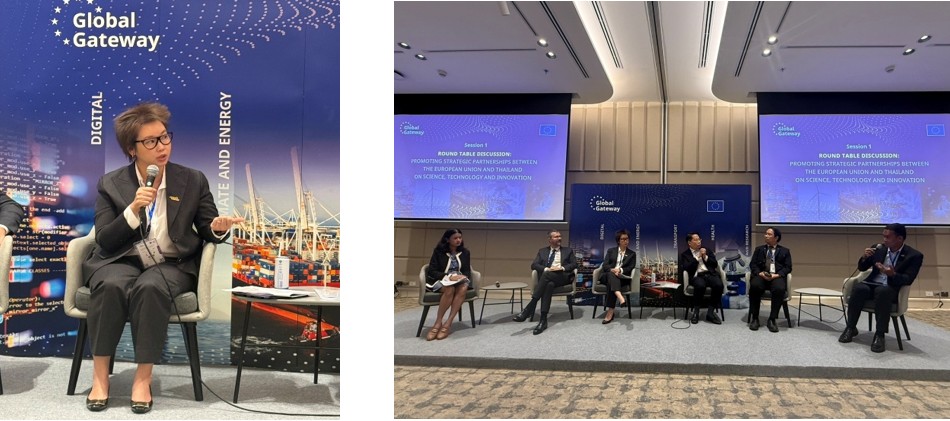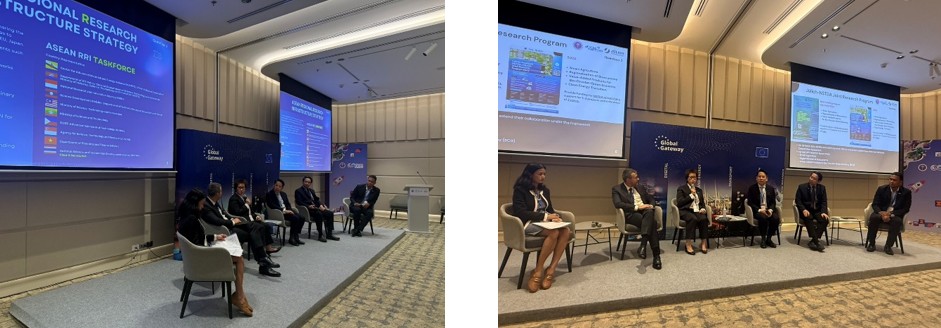MHESI Science Fair 2025, on 12 August 2025, the Delegation of the European Union to Thailand and MHESI co-hosted a workshop titled “Promoting Cooperation on Research and Innovation between the European Union and Thailand: The European Union’s Global Gateway Investment Priorities in Higher Education and Research.” The event drew researchers, institutional leaders, and representatives from government and the private sector from both Thailand and Europe.

In one of the key sessions on “Promoting Strategic Partnerships between the European Union and Thailand on Science, Technology and Innovation”, Dr. Uracha Ruktanonchai, Executive Director of the National Nanotechnology Center (NANOTEC), presented the NSTDA perspective on strengthening EU–Thailand collaboration. She outlined Thailand’s science, technology, and innovation priorities aimed at driving economic transformation, supporting sustainable development, and enhancing national resilience. Key focus areas include health and well-being, premium agriculture and food, clean energy and decarbonization, digital technologies, and advanced manufacturing.

Dr. Uracha shared notable NSTDA initiatives, such as the development of high-value bio-based products, area-based agricultural innovation programs, digital health solutions, and deep technology platforms including the National AI Ecosystem and Industry 4.0 readiness projects.
Looking ahead, she emphasized that future cooperation with the European Union should capitalize joint research efforts, researcher mobility, and shared access to research infrastructure. Mechanisms such as Horizon Europe, Marie Skłodowska-Curie Actions, and the ASEAN Regional Research Infrastructure Strategy were cited as strategic platforms to accelerate knowledge exchange and jointly address global challenges including climate change, pandemics, and inclusive growth.

On the policy front, Dr. Uracha called for dedicated co-funding mechanisms and regular policy dialogues to ensure alignment and continuity in joint efforts. She cited the long-standing NSTDA–Forschungszentrum Jülich partnership as a successful model for impactful, long-term collaboration that combines joint research agendas, staff exchanges, and shared infrastructure use.
Her remarks resonated with participants and sparked a lively exchange of ideas on how to align national and EU priorities, integrate multi-stakeholder engagement, and advance research-to-impact pathways—laying the groundwork for a more connected, resilient, and innovation-driven EU–Thailand partnership in the years to come.
